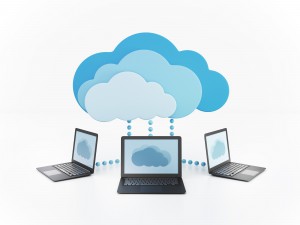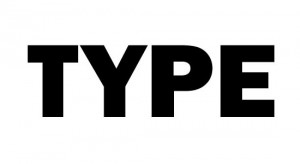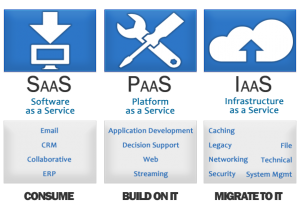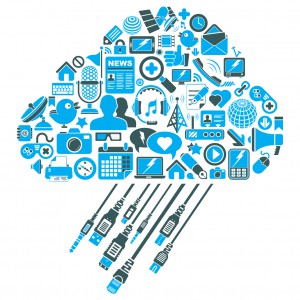Have you heard about the different types of “clouds” ?
 Amit Cohen, CEO of FortyCloud, stated that “the forecast of tomorrow’s computing is definitely cloudy”, as “companies are more and more realizing that they can save immensely by having their files and systems in the cloud”. What is “the cloud”, “cloud computing”? Anyone who uses a computer or any electronical device has heard the term “the cloud”. After someone researches they find many different definitions of what the cloud is, in many different explanations. What you’ve read before simple explains this; “Cloud Computing means storing and accessing data and programs over the internet instead of your computer’s hard drive.”
Amit Cohen, CEO of FortyCloud, stated that “the forecast of tomorrow’s computing is definitely cloudy”, as “companies are more and more realizing that they can save immensely by having their files and systems in the cloud”. What is “the cloud”, “cloud computing”? Anyone who uses a computer or any electronical device has heard the term “the cloud”. After someone researches they find many different definitions of what the cloud is, in many different explanations. What you’ve read before simple explains this; “Cloud Computing means storing and accessing data and programs over the internet instead of your computer’s hard drive.”

Infrastructure as a service (Iaas): “Iaas refers to online services that abstract user from the detail of infrastucture like p hysical computing resources, location, data partitioning, scaling, security, backup etc”
hysical computing resources, location, data partitioning, scaling, security, backup etc”
Platform as a Service (PaaS): “Typically including operating system, programming-language execution environment, database, and web server.” Application developers can develop and run their software solutions on a cloud platform without the cost and complexity of buying and managing the underlying hardware and software layers”
Software as a Service (SaaS): “Users gain access to application software and databases. Cloud providers manage the infrastructure and platforms that run the applications. SaaS is sometimes referred to as “on-demand software” and is usually priced on a pay-per-use basis or using a subscription fee”
Network as a Service (Naas): The least common model, where the user is provided with network connectivity services, such as VPN and bandwidth on demand.

Public: “A public cloud is one in which the services and infrastructure are provided off-site over the Internet.” A public cloud is used when many people use the same applications on the job. Your company uses SaaS Your company increments the computer capacity Collaboration projects Cost Efficient
Private: Offers much more security and more control than what a public cloud offers. These can be located onsite or offsite.
Hybrid: Include cost saving for Public Cloud in services for the company’s website while keeping a Private Cloud for applications.
 Reasons why a company should have Cloud Computing: Business Agility: Companies that use Cloud Computing can increase or decrease their needed services to meet demands. Companies can innovate, introduce new products or devices and adapt to changing circumstances. Personnel: When using a public cloud the company doesn’t operate this cloud, so there is no need to train anyone in the company to manage it, this reduces time and money training personnel. Productivity: Globalize: If your company counts with workers anywhere in the world, just having Internet connection makes them part of the cloud. Accessibility: The cloud can be accessed anytime and anywhere. Flexible Cost: Using cloud computing is much more flexible than traditional methods. Using the cloud you can pay as you go (weekly, monthly or yearly). Cloud computing is more cost effective: Companies don’t have to buy equipment or operate a data center, they don’t have to spend money on hardware, facilities, or utilities. Environmental Impact: “With fewer data centers worldwide and more efficient operations, we are collectively having less of an impact on the environment. Companies who use shared resources improve their ‘green’ credentials.” – Coles, C.[/text_dd][/column_dd][/section_dd]
Reasons why a company should have Cloud Computing: Business Agility: Companies that use Cloud Computing can increase or decrease their needed services to meet demands. Companies can innovate, introduce new products or devices and adapt to changing circumstances. Personnel: When using a public cloud the company doesn’t operate this cloud, so there is no need to train anyone in the company to manage it, this reduces time and money training personnel. Productivity: Globalize: If your company counts with workers anywhere in the world, just having Internet connection makes them part of the cloud. Accessibility: The cloud can be accessed anytime and anywhere. Flexible Cost: Using cloud computing is much more flexible than traditional methods. Using the cloud you can pay as you go (weekly, monthly or yearly). Cloud computing is more cost effective: Companies don’t have to buy equipment or operate a data center, they don’t have to spend money on hardware, facilities, or utilities. Environmental Impact: “With fewer data centers worldwide and more efficient operations, we are collectively having less of an impact on the environment. Companies who use shared resources improve their ‘green’ credentials.” – Coles, C.[/text_dd][/column_dd][/section_dd]
